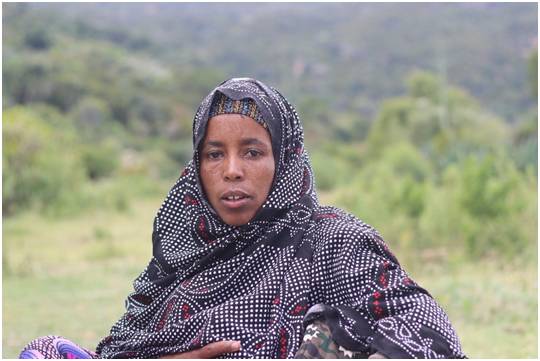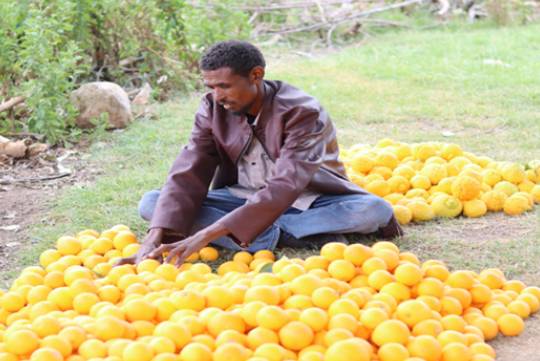- Home
- Who we are
- What we do
- Agriculture Development
- Nutrition & Food Security
- Water, Sanitation And Hygiene (WASH)
- Gender Justice Womens Rights
- Humanitarian Emergency Response
- Child Protection
- Climate Change And Environmental Conservation
- Economic Development
- Gender Equality
- Climate Change and Resilience
- WASH
- Humanitarian Assistance
- Our Impact
- Where We Work
- Contact Us
- Resources
- Donate Now
EMPOWERING WOMEN THROUGH SAVING
Access to financial services such as saving accounts is very limited throughout the country, particularly in poor rural communities like Xidhxidh. Lack of access to formal financial services and micro-finance services limits the ability that many women have. Regarding that aforementioned issue, Agricultural Development Organization (ADO) with support from International Solidarity Foundation (ISF) established self-help groups aimed at promoting simple financial services for pastoral and agro-pastoral households to increase income and meet basic needs. It is also aimed to create investment opportunities for alternative sources of livelihoods and hence improve financial capability that helps expand existing business and create a small business. Moreover, ADO prepared self-help groups SHGs training sessions to equip the saving groups on how they could save their money safely and access small loans.
Muna Abdi Yousuf, a 25-year-old mother of two children, lives in Xidhxidh Village, some 33kms north of Erigaabo in Sanaag Region, applied for loans twice and invested it into her small business. She first took a loan of $170 (1500,000slsh) and later another $170 (1500,000slsh) a total of $340. The good news is that Muna has repaid the loan, and her business is thriving. She said,
“Being a member of Self-help groups (SHGs) has changed my life; my business is very profitable because I have had access to investment capital that helped me to increase my business stock. Now, I have repaid all loans and benefited twice the capital I invested and expanded my business.”
The inclusion of women in economic activities has strengthened the position of women in their communities and at home, tremendously. Besides stimulating local business life by opening small businesses and commercializing their farming, they are now able to contribute to household improvements by acquiring assets like purchasing livestock, land, crops. Finally, Muna expressed her gratefulness to ADO for handholding support they provided since the establishment of their saving group. “I want to thank ADO for its support since the establishment of our group. I did not realize that the money we have saved had such enormous impact on business. Now I have purchased seven rams, vegetable seeds and expanded by small business, ” she added.

From Hopeless To Hopefulness: Saed’s Success Story
Saed Mohamoud, a father of 8 children and their mother living in Boodhley village, Togdheer region. Boodhley is agro-pastoralists community which lies 39km North of Burao town. Severe droughts have affected community’s livelihoods, depleted their assets including livestock and reduced local rain fed farms productions in the past years. The drought had badly affected agricultural production yields, livestock, and water accessibility due to insufficient rainfall.
Sa’eed Mohamoud was among the most vulnerable poor households suffering during the last drought in Boodhley village. At the beginning of 2023, when seasonal Gu’ rain started, he could not avoid cultivating any crops because he had no money or livestock to buy seeds nor to pay for tractor ploughing hours. Agricultural farm production was the main source of household income while livestock was the second source of income.
In response to above mentioned challenges ADO had addressed the problem successfully under ISF project “Strengthen women’s livelihood for economic development and climate change adaptation” distributed assorted seeds (cereals, legumes and vegetables) to the vulnerable farmers including Sa’eed and also targeted the right beneficiaries at right time for the right reason with support of agricultural hand-tools. However, when Gu rains started Sa’eed was luckily selected by local community committees to benefit from hand-tools and assorted seeds supported by ADO on the basis of ADO vulnerability selection criteria. The project had supported agricultural hand-tools and assorted seeds like sorghum, watermelon, sesame and cowpeas to each household including Sa’eed’s household.
Saed also participated several trainings—including but not limited: good agricultural practices (GAP), crop marketing—that project conducted in Boodhley village in order build the capacity of the farmers and pastoralists in order to cope and recover from the adverse effect of shocks.
As a result of ADO ISF project support Sa’eed harvested 2 sacks of sorghum and 1500 pieces of Watermelon that sold for $1680 while sorghum is used for household food consumption while the biomass was used for fodder for animal that Sa’ed have during the dry seasons.
“Project supported us seeds, farm tools, and several trainings that I have gained knowledge and skills that at this time I have applied and the outcome of all these interventions you can see my situation—production”
In addition, Sa’eed took some of the harvested watermelon to Burao city for better selling price while he stored some of the sorghum for seeding purpose in the coming seasons. At the current time Sa’eed’s household is in well and good food secured condition his children are well nourished now, perusing innovative farming techniques like GAP with diversified crop production income related activities and thank full to ADO project for their instant lifesaving sustainable project.
Finaly sa’ed spoke his hope about the future and thanked ADO for their support “Everyone has a wish or hope; in summary, I and my family come from hopeless to hopefulness situation. Thanks to the ADO for their continues support and interventions they did for the last two years”.

Remaining Hopeful For Better Tomorrow!!
Salah Mohamed is 38 years old and the father of seven children. He lives in Gaacidh village, about 35km north of Erigavo in the Sanaag region. The majority of people living in Gaacidh, Sanaag rely on agriculture and livestock for their source of livelihoods. However, Dilapidated and limited water canals and water reservoirs (Berkads) accompanied by years of poor rainfall have caused prolonged drought and a poor harvest of crops and production of livestock.
Successive years of dry conditions and dilapidated/lack of water canals and water storages caused him to wait for water for more than one month (30 days) —spring water— due to shortage of water and loss of water to soil. This depleted household resources and disrupted agriculture and livestock-based livelihoods, constraining access to food and income for his household.
Agricultural Development Organization (ADO) with support from the International Solidarity Foundation (ISF) constructed and rehabilitated 2930 meters-long water canals and three Berkads (water storage). Salah accessed water to release any time that his farm required water because of the rehabilitation and construction of water canals and storages (Berkads). This leads Salah to harvest/produce more than his production and able to cope with and recover from the adverse effects of drought due to accessibility of water.
“Before ADO constructed water canals and Berkads it was difficult to access water at the time that crops needed water. At this time, I can irrigate my farm any time and produced more crops compared to the previous time” —as stated by Salah,
Salah also took part in several trainings that aimed to equip communities living in project target areas to build the capacity of the community to cope with and recover from the adverse effect of climate change on their livelihoods.
Finally, I harvested more than 7000 pcs of citrus fruits that he transported to the Erigavo market and sold good values since I harvested earlier than the other farmers. I earned 3500,000slsh which equivalent to $411.76. —as stated by Salah

About Us
The Agricultural Development Organization in Somaliland is a dynamic and dedicated organization working towards the improvement and advancement of agriculture in the region. We are committed to enhancing agricultural practices, promoting food security, and fostering economic growth in Somaliland.
Useful Links
© 2024 All Rights Reserved. Designed & Developed By Mobrilz.

 Where We Work
Where We Work